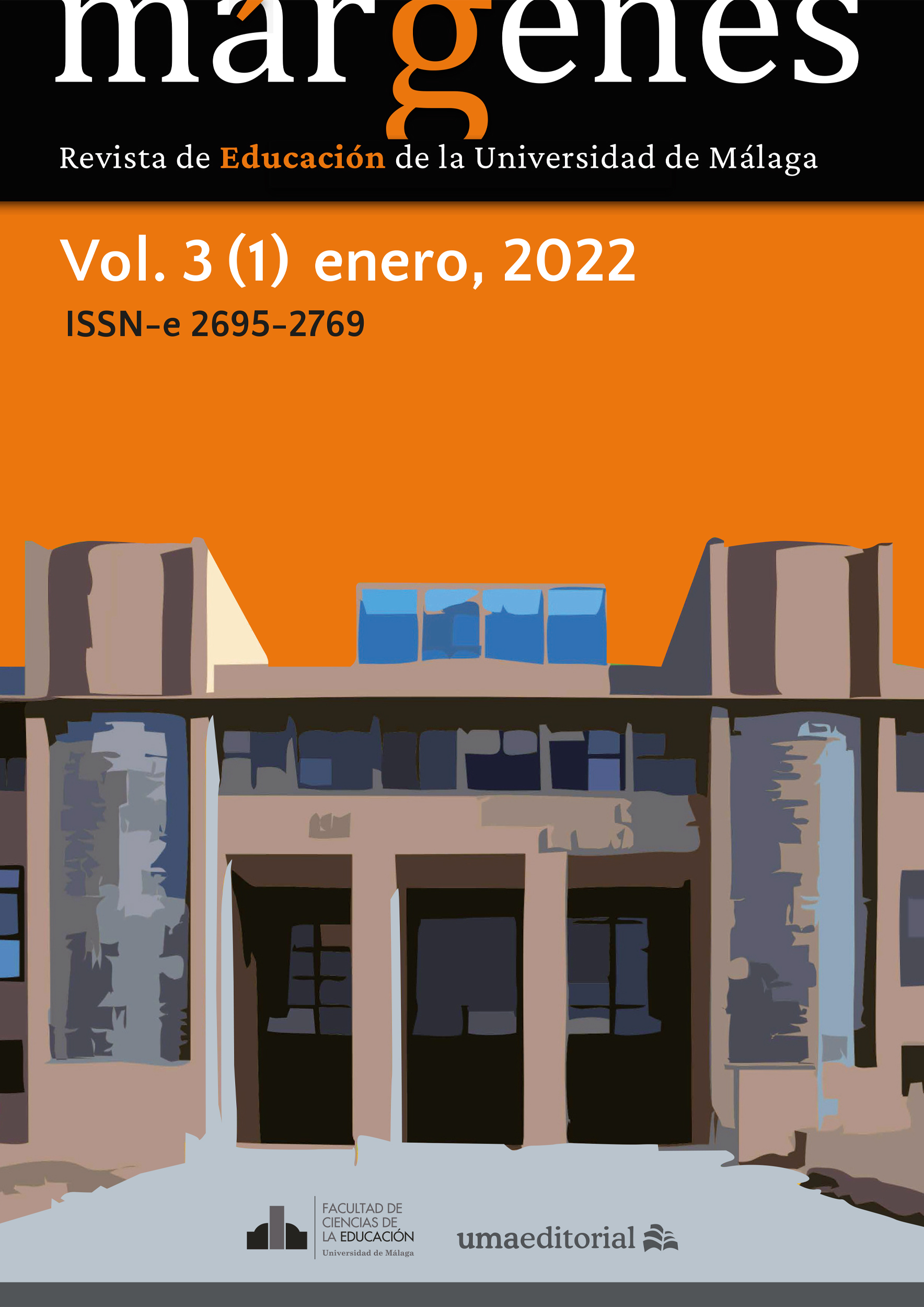Give voice? No, listen to me
DOI:
https://doi.org/10.24310/mgnmar.v3i1.13638Keywords:
give voice, domination, listening, recognition, charityAbstract
The paper gathers reflections about the expression, more and more frequently used, "give voice to" or "give voice to". Starting from the etymology of the verb "give", the nuances and meanings contained in this expression are addressed. It is revealed that the good intention to give the voice can remain in an act of solidarity or charity, in a way to reproduce the already existing domination. The way is opened to suppress the expression "give voice to" by other forms that refer to the participation, recognition and presentation of those who have a voice, but who cannot speak or are heard. Listening is presented as an act of recognition, an ethical-political act and an act of emancipation.
Downloads
Metrics
References
Beverly, J. (2004). Subalternidad y representación. Debates en teoría cultural. Iberoamericana.
Escobar, A. (2004). Más allá del tercer mundo globalidad imperial, colonialidad global y movimientos sociales anti-globalización. Nómadas, (20), 86-100.
Fanon, F. (1999[1961]). Los condenados de la tierra. Txalaparta.
Fanon, F. (2009). Piel negra, máscaras blancas. Akal.
Flinterud, G. (2014). Stealing from bakhtin.Writing the Voices of the “Voiceless”. Nordic Journal of Science and Technology Studies, 2 (1), 71-76.
Freeman, C. P., Bekoff, M., y Bexell, S.M. (2011). Giving voice to the “voiceless”. Journalism Studies, 12(5), 590–607. http://dx.doi.org/10.1080/1461670X.2010.540136
Freire, P. (1970). Pedagogía del oprimido. Editorial Tierra Nueva.
Freire, P. (1984). La importancia de leer y el proceso de liberación. Siglo XXI Editores.
Moliner, M. (1998). Diccionario del uso del español. Gredos.
RAE (2020). Diccionario de la Lengua Española. Edición del Tricentenario. https://dle.rae.es/
Sierra, E., y Blanco, n. (2017). El aprendizaje de la escucha en la investigación educativa. Qualitative Research in Education, 6(3), 303-326. https://doi.org/10.17583/qre.2017.2783
Spivak, G. Ch. (1988). Can the Subaltern Speak? En C. Nelson y L. Grossberg (Eds.), Marxism and the interpretation of Culture (pp. 271-313). University of Illinois Press.
Susinos, T., y Parrilla, A. (2008). Dar la voz en la investigación inclusiva: debates sobre inclusión y exclusión desde un enfoque biográfico-narrativo. REICE. Revista Electrónica Iberoamericana sobre Calidad, Eficacia y Cambio en Educación, 6(2), 157-171. http://www.rinace.net/arts/vol6num2/art11.pdf
Thompson, P. (1989). The Voice of the Past. Oral History (2ª ed.). Oxford University Press.
Downloads
Published
How to Cite
Issue
Section
License
The editorial team of Márgenes supports an open Access policy of scientific knowledge. apostamos claramente por una política de acceso abierto del conocimiento científico (see Berlin Declaration).
Authors with work published in this journal accept the following conditions:
- This journal provides immediate free access to its content under the principle of making research freely available to the public. All contents published in Márgenes are subject to the Creative Commons Reconocimiento-SinObraDerivada 4.0 Internacional
It is the responsibility of the authors to obtain the necessary permissions of the images that are subject to copyright.
Authors whose contributions are accepted for publication in this journal will retain the non-exclusive right to use their contributions for academic, research and educational purposes, including self-archiving or deposit in open-access repositories of any kind.
The electronic edition of this magazine is edited by the Editorial of the University of Malaga (UmaEditorial), being necessary to cite the origin in any partial or total reproduction.
- Authors can enter into other additional independent contractual agreements for the non-exclusive distribution of the version of the article published in this journal (e.g. including it in an institutional repository or publishing it in a book) on the condition that they clearly indicate that the work was originally published in this journal.
- Authors are allowed and recommended to publish their work on the Internet (for example on institutional and personal websites), before and after the publication, as this could lead to constructive exchanges and a more extensive and quick circulation of published works (see The Effect of Open Access).














